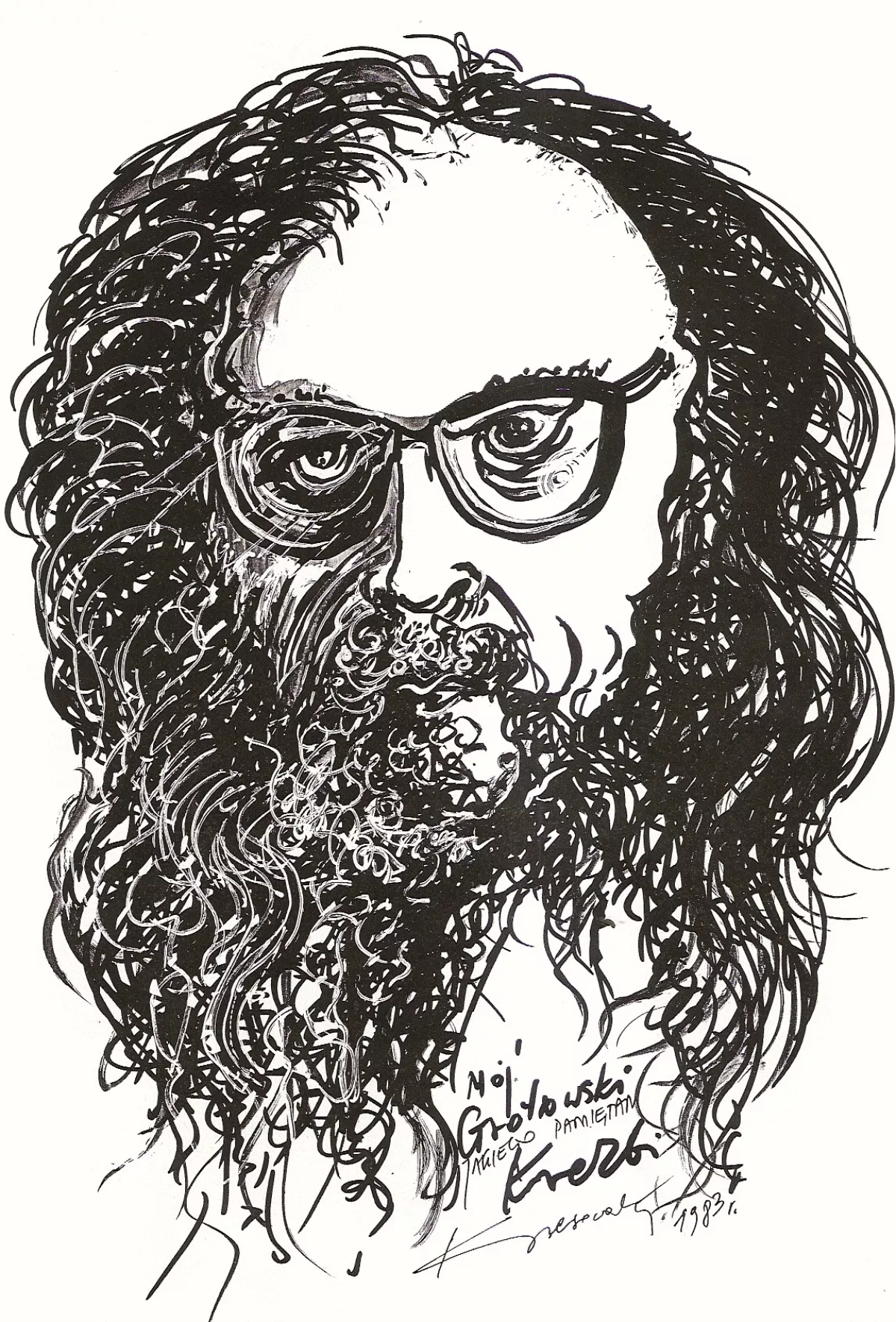 1.
1. Jerzy Grotowski is considered one of the most influential theatre practitioners of the 20th century as well as one of the founders of experimental theatre.

 1.
1. Jerzy Grotowski is considered one of the most influential theatre practitioners of the 20th century as well as one of the founders of experimental theatre.
Jerzy Grotowski was born in Rzeszow, in southeastern Poland, in 1933 and studied acting and directing at the Ludwik Solski Academy of Dramatic Arts in Krakow and Russian Academy of Theatre Arts in Moscow.
Jerzy Grotowski debuted as a director in 1957 in Krakow with Eugene Ionesco's play Chairs and shortly afterward founded a small laboratory theatre in 1959 in the town of Opole in Poland.
However, Jerzy Grotowski became increasingly uncomfortable with the adoption and adaptation of his ideas and practices, particularly in the US.
Jerzy Grotowski was 6 when World War II broke out in 1939.
Jerzy Grotowski made his individual directorial debut in 1958 with the production Gods of Rain, which introduced his bold approach to text, which he continued to develop throughout his career, influencing many subsequent theatre artists.
Later in 1958, Jerzy Grotowski moved to Opole, where he was invited by the theatre critic and dramaturg Ludwik Flaszen to serve as director of the Theatre of 13 Rows.
In 1964, Jerzy Grotowski followed success with success when his theatre premiered The Tragical History of Doctor Faustus based on the Elizabethan drama by Christopher Marlowe, featuring Zbigniew Cynkutis in the title role.
Foregoing the use of props altogether, Jerzy Grotowski let the actors' bodies represent objects.
Jerzy Grotowski seated audience members as the guests at Faust's last supper, with the action unfolding on and around their table.
Jerzy Grotowski revolutionized theatre and along with his first apprentice, Eugenio Barba, leader and founder of Odin Teatret, is considered a father of contemporary experimental theatre.
Jerzy Grotowski was the editor of the seminal book Towards a Poor Theatre, which Grotowski wrote together with Ludwik Flaszen, in which it is declared that theatre should not, because it could not, compete against the overwhelming spectacle of film and should instead focus on the very root of the act of theatre: actors cocreating the event of theatre with its spectators.
Jerzy Grotowski's company made its debut in the United States under the auspices of the Brooklyn Academy of Music in the fall of 1969.
In 1973 Jerzy Grotowski published Holiday, which outlined a new course of investigation.
Jerzy Grotowski attempted this through the organization of communal rites and simple interactive exchanges that went on sometimes for extended periods, attempting to provoke in poor participants a deconditioning of impulse.
Always a master strategist, Jerzy Grotowski made use of his international ties and the relative freedom of travel allowed him to pursue this program of cultural research in order to flee Poland following the imposition of martial law.
Jerzy Grotowski spent time in Haiti and in Rome, where he delivered a series of important lectures on the topic of theatre anthropology at the Sapienza University of Rome in 1982 before seeking political asylum in the United States.
Jerzy Grotowski initiated a creative relationship with the American Keith Fowler and his student, James Slowiak.
In 1986, Jerzy Grotowski was invited by Roberto Bacci oto his theater center in Pontedera, Italy.
Jerzy Grotowski gladly accepted, taking with him three assistants from Objective Drama research to help in founding his Italian Workcenter.
Jerzy Grotowski characterized the focus of his attention in his final phase of research as "art as a vehicle," a term coined by Peter Brook.
Jerzy Grotowski's Will declared the two his "universal heirs," holders of copyright on the entirety of his textual output and intellectual property.
Jerzy Grotowski was among a small group of actors and directors, including Peter Brook and Roy Hart, who sought to explore new forms of theatrical expression without employing the spoken word.
Jerzy Grotowski said that theatre 'is a question of a gathering which is subordinated to ritual: nothing is represented or shown, but we participate in a ceremonial which releases the collective unconscious'.
James Roose-Evans states that Jerzy Grotowski's theatre 'speaks directly to the fundamental experience of each person present, to what Jung described as the collective unconscious.
Jerzy Grotowski thus pursued the possibility of creating 'ideograms' made up of 'sounds and gestures' which 'evoke associations in the psyche of the audience'.
Many of the acting exercises and rehearsal techniques developed by Jerzy Grotowski were designed to removing these personal obstacles, which prevented the physical and vocal expression of this imagery, and Jerzy Grotowski proposed that such a training process 'leads to a liberation from complexes in much the same way as psychoanalytic therapy'.